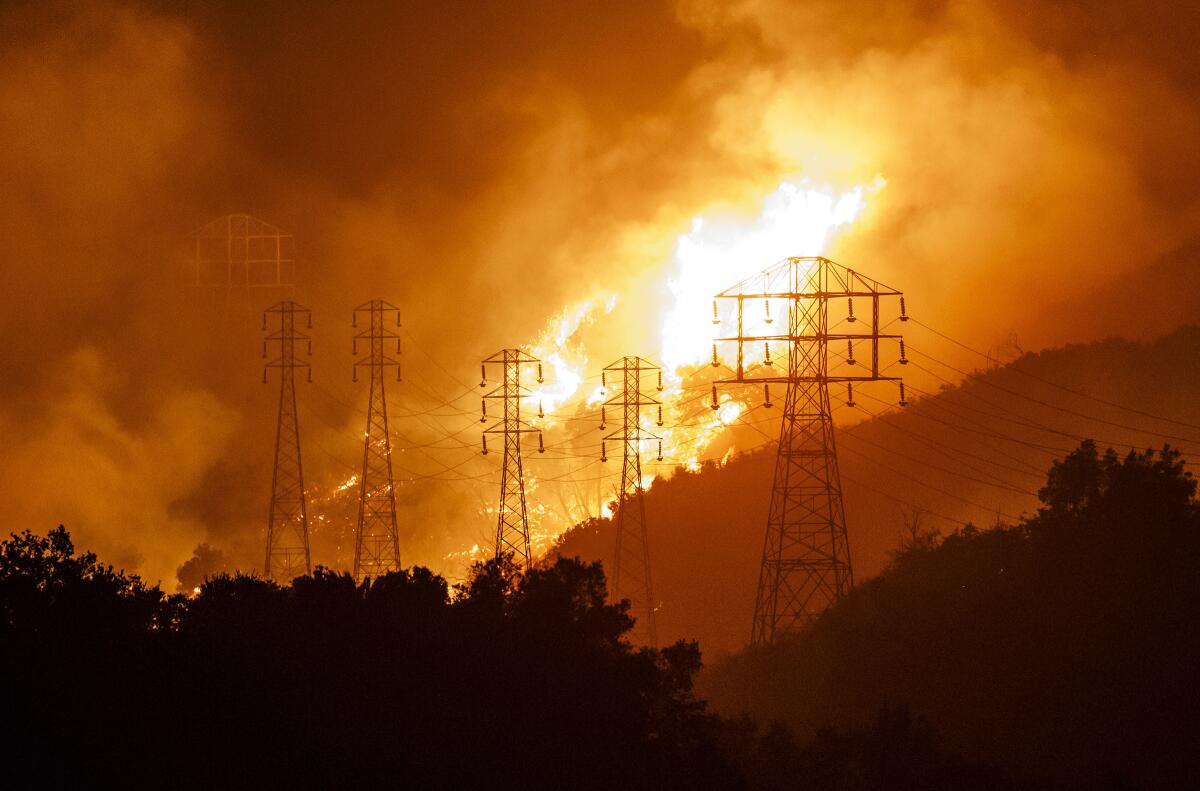Editorial: California’s wildfires aren’t going to stay quarantined for coronavirus

Remember wildfires? With the COVID-19 pandemic sucking up all the oxygen in the news cycle, it’s easy to forget that there are other threats to public safety out there.
The state’s power companies have not forgotten, however. They are under the gun to make to their power lines safer and less likely to spark before the next fire season rolls around — or face dire financial consequences. Sparking power lines are a common cause of wildfires.
But Southern California Edison officials say that the County of Los Angeles and a handful of communities in high-fire-risk areas are standing in their way, suspending or denying permits needed to initiate work if it involves power outages for local residents.
Government officials counter that they are open to exploring ways to do wildfire safety work that’s less disruptive for residents stuck at home during the pandemic. But power outages in the middle of an emergency like this one are a bad idea, they say. They add that Edison officials haven’t been flexible or particularly communicative, and as a result they have had little choice but to say no.
Meanwhile, the California Public Utilities Commission has directed the utilities and local officials to iron out their differences so that the work can be done.
We agree. Just because wildfires aren’t as immediate a threat to public safety as the coronavirus, they soon will be — and may be even worse than usual thanks to a dry winter. We get that it’s a terrible time to cut off power, even for a few hours, for people instructed not to go out. Their freezers and fridges are stocked with food and many are now working or learning from home.
But suspending the upgrades could cause much more than just a few hours of disruption down the road. Edison said it has already decided to defer regular maintenance and focus on projects critical for safety, such as replacing transformers nearing the end of their natural life and insulating power lines so they don’t start fires. If Edison doesn’t do this now, it increases the risk of unplanned outages and wildfires later. And we can never forget that the deadliest and most destructive wildfires in recent years were ignited by sparking or malfunctioning power lines and equipment.
So this work must go on, but Edison shouldn’t run roughshod over local officials who have legitimate responsibility to protect residents. The utility must be willing to keep power disruptions to a minimum, by working at night or on weekends as much as possible, and it must help line up sources of backup power and communicate proactively with both customers and the elected officials who represent them.
More to Read
A cure for the common opinion
Get thought-provoking perspectives with our weekly newsletter.
You may occasionally receive promotional content from the Los Angeles Times.










